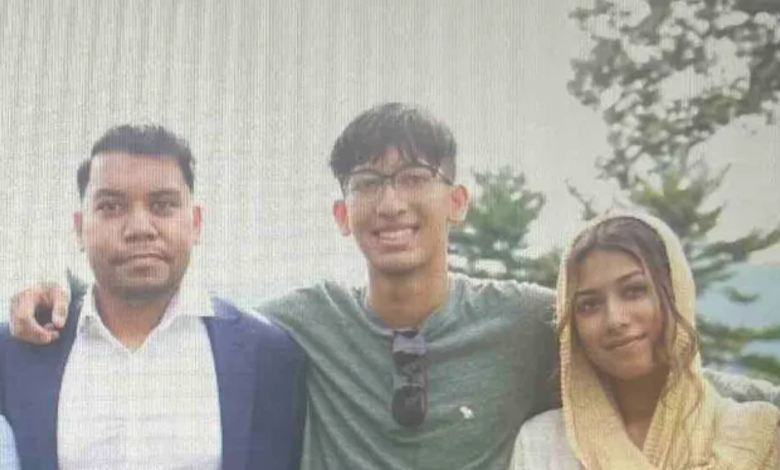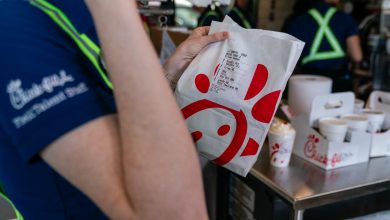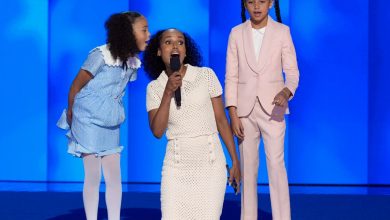Airbnb sued after three members of same family drown on vacation

After three members of the same New York family drowned at an upstate swimming hole, their loved ones, who witnessed the harrowing tragedy as it unfolded, are demanding accountability for their unthinkable loss.
Bangladeshi immigrants Rahul and Rahala Amin, two of whose four children perished in Sullivan County’s White Lake, and their daughter Nahima Amin, whose husband also drowned, are now suing Airbnb and the owners of the vacation home where they were staying, arguing that the senseless deaths could have — and should have — been avoided.
“I hope we are able to get something to help our family,” Nahima’s brother Faruque, who himself nearly drowned trying to rescue his siblings and brother-in-law, told The Independent. “… It’s hard to put into words the pain we feel.”
Faruque said the family remains “shattered,” and is “still trying to come to terms with the reality that they are no longer with us. Every day is a struggle as we cope with the overwhelming grief and the memories of that tragic day.”
“We believe that this tragedy could have been avoided if proper precautions had been in place,” Faruque said, “and we are committed to ensuring that no other family has to endure what we have been through.”
Airbnb did not respond to a request for comment on Thursday. The homeowner, who is also named as a defendant, referred The Independent to a co-defendant they described as a property manager, who was out of town and did not immediately respond to a voicemail.
In August 2022, Nahima booked a three-day stay at a lakefront Airbnb in the town of Bethel, which became famous for hosting the 1969 Woodstock music festival, for the family’s annual summer holiday, according to a lawsuit filed Thursday in New York State Supreme Court. The home was advertised on the Airbnb site as “luxe,” and “safe,” and “emphasized the lake and lake-related activities available to guests,” the lawsuit states.
The property boasted private lake frontage, and featured a wooden dock and a floating swim platform for visitors to enjoy, the suit explains.

On August 28, the family’s second day there, a few of them were wading in the lake, close to shore, when Nahima’s husband, 34-year-old Afrid Haider, began making his way toward the swim platform, according to the suit. It says Afrid was not a very good swimmer, but the water seemed shallow enough for him to get there by walking along the bottom.
The lake’s knee-deep water gradually increased to about four or five feet as Afrid headed to the platform, the suit goes on. However, he had no idea that before he got there, the lakebed would suddenly drop off to a depth of nearly 18 feet, a “drastic change… neither visible from shore nor from the surface of the water,” according to the lawsuit.
“Upon reaching the drop off… [Afrid] lost his footing and fell into the deeper portion of the lake,” the suit continues. “Shocked and surprised by the sudden change in water depth, he began to panic and struggle to stay above the water. He was unable to regain his footing or reach the safety of the shallower depths and began to drown.”
When Nahima’s brother Basir, 18, and sister Nasrin, 21, saw Afrid struggling, they immediately formed a “human chain” to try and reach him, the lawsuit states.
Yet, the underwater cliff also got the better of the pair, who themselves were not proficient swimmers, according to the suit.
“[T]hey tried as best they could to maintain their footing as they reached for [Afrid],” the lawsuit says. “[Basir and Nasrin] were pulled off the ledge and over the drop-off as they attempted to rescue [Afrid]. [Basir and Nasrin] themselves immediately began to struggle to stay above the water and also began to drown.”
Back on shore, Nahima and Faruque, along with parents Rahul and Rahala, saw what was happening and sprang into action. But as they, too, were not good swimmers, the four were “in fear [for] their own lives,” the suit contends. The group “made various attempts” to save Afrid, Basir, and Nasrin, “but were unsuccessful,” according to the suit.

In a GoFundMe appeal Faruque posted at the time, he recalled “rush[ing] in immediately with a water board” in a bid to save his siblings and brother-in-law.
“I tried to grab them to hold the board, but I was dragged down into the water myself,” he wrote. “After a minute, which felt like hours, I got back up trying to get air, and all I saw was the board floating away and far from my reach. Within a nano second, I was dragged down again and lost consciousness, and the next thing I remember was I was back up, gasping for air.”
A New York State trooper on the scene told Mid-Hudson News that White Lake is spring-fed, creating cold, swift currents.
“For people who are not familiar with the lake, it may seem warm and calm, but underneath it isn’t,” the trooper said.
Rescue divers from the local fire department responded to the scene. Following a deep-water search, they pulled the trio from the lake and rushed them to an area hospital, the lawsuit states. Basir was pronounced dead later that day; Haider succumbed the next day. Nasrin, who was by then in a coma, survived for a week before finally passing, the suit says.
Basir was “a bright and generous young man with so much potential ahead of him,” Faruque told The Independent. Nasrin, he went on, “was dedicated to her family and had a promising future.” Afrid, Faruque said, “was a devoted husband and family man, the only son of his parents, whose lineage ended with his untimely death.” The “profound void in our hearts” will never fully heal,” according to Faruque.
In their lawsuit, the surviving family members say the homeowners and Airbnb were negligent in “enticing” guests to use the swim platform without also installing some sort of signage or warning about the “zone of danger” they would encounter on the way there. Among other things, the Amins say they have suffered emotional distress as a result of the horrific incident.
After the three deaths, the Amin family formed a charitable foundation meant to provide swimming lessons to underserved communities and emotional support to families affected by “drowning-related loss.” A lack of water safety training is “rampant” among the Bangladeshi diaspora, along with other minority communities in the US, according to the release.
Faruque said on Thursday that the family is doing their best to remain strong, and to honor Afrid, Basir, and Nasrin “by seeking justice, not just for our family but to help prevent such tragedies from happening to others.”
“We know the reality that we can’t prevent everything and protect everyone, but if we can help at least one family, or save one life, we are one step closer to our goal,” he said.
The family’s GoFundMe, which is still accepting donations, has raised nearly $140,000.







